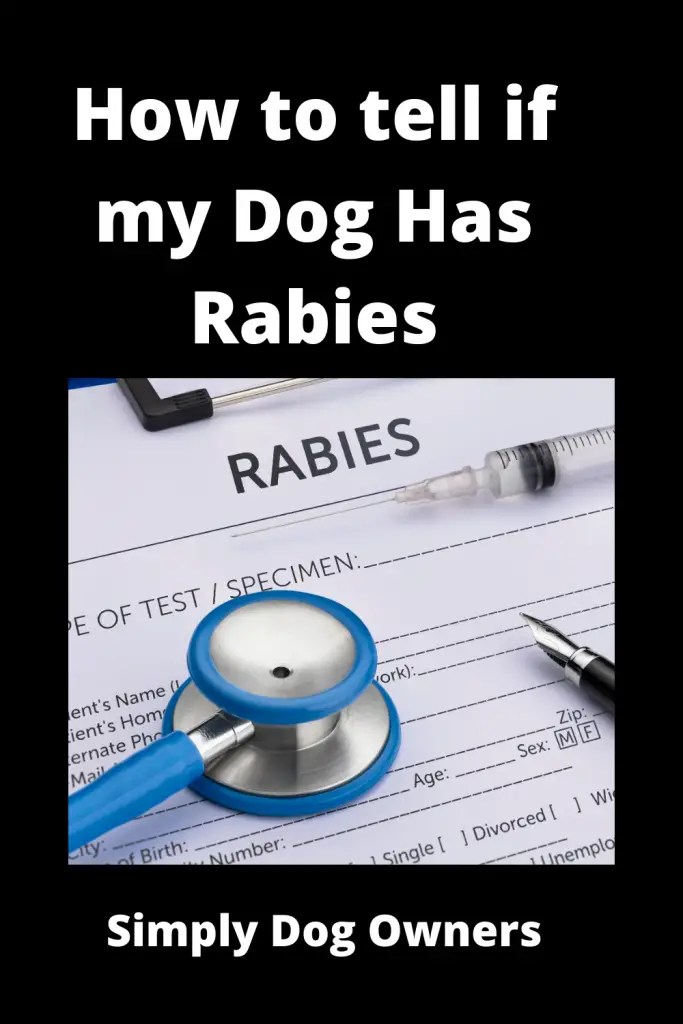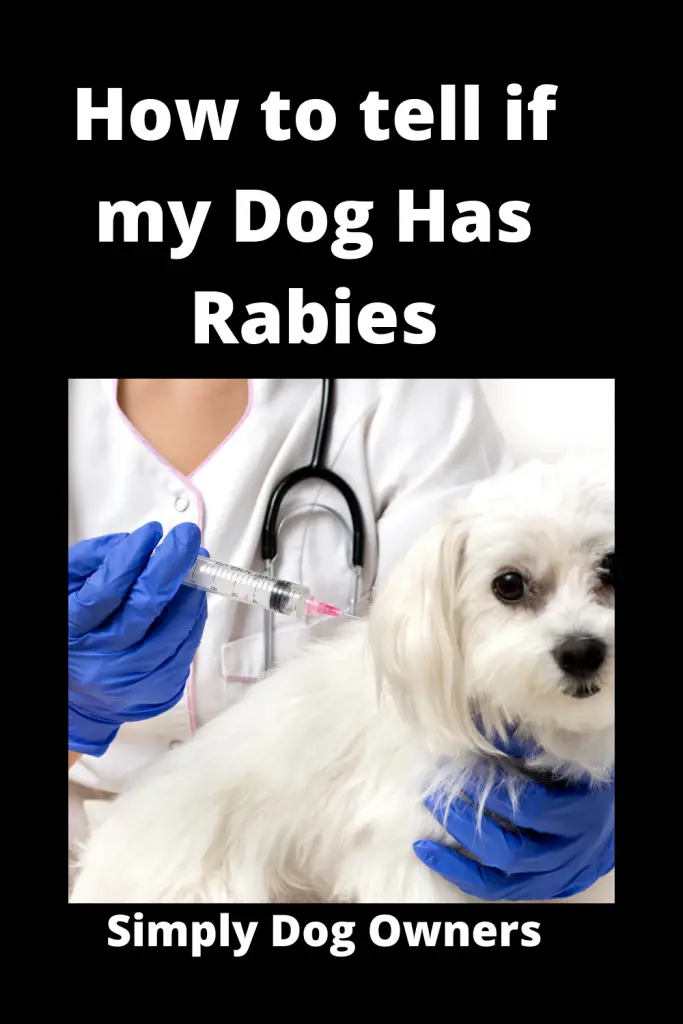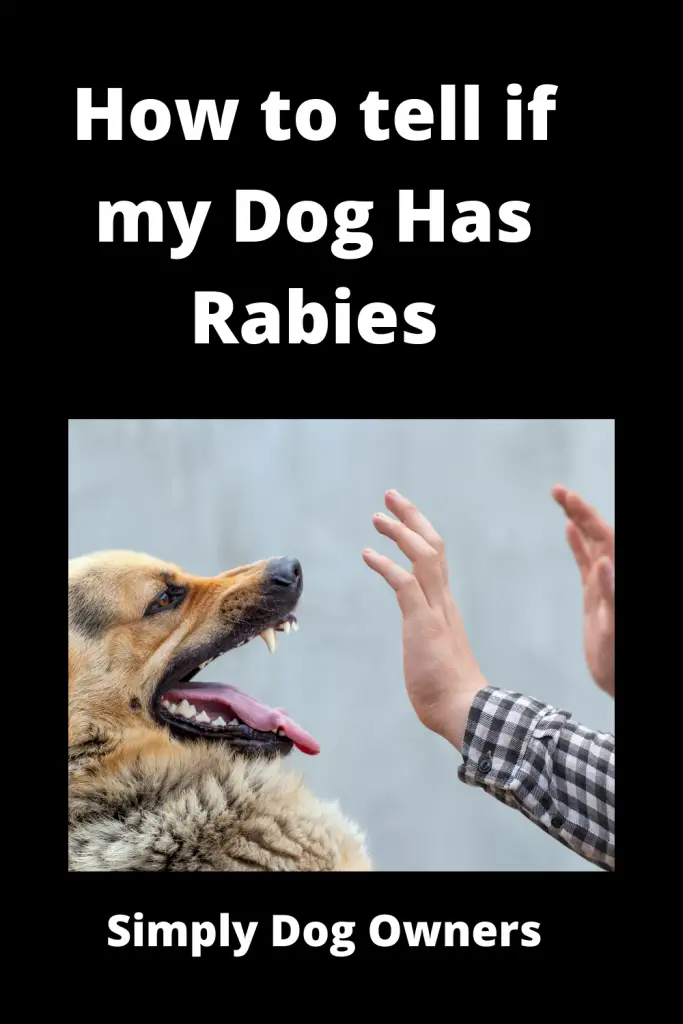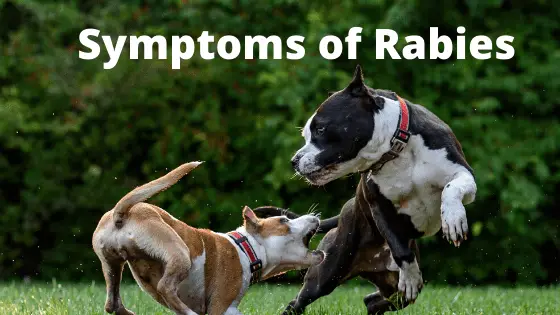How to tell if my Bichon has Rabies?
How to tell if my Dog Has Rabies? Imagine a disease powerful enough to turn your docile Bichon into a snarling beast. Imagine one strong enough to compel an active Bichon Frise into utter paralysis within a month. Yes, we are talking about “rabies”.
Why my cute fluffy Bichon behavior is changing? How do I know if my Bichon has rabies? Or which are the chances of vaccinated Bichon getting rabies?
In either way, if you want to know the answers to these questions, then this article is specially written for you.

What is Rabies?
There is a good reason that the word “rabies” evokes fear in people and especially in dog parents. The disease has been reported in every state except Hawaii, and everywhere throughout the world except for Australia and Antarctica.
Rabies is one of the deadly diseases in Bichons that have no cure, only methods to prevent its spread.
Be very careful with it, because it is caught with extreme ease and can even be transmitted to your Bichon that has already been vaccinated, although this is the only effective way to prevent it.
Rabies is a viral infection that has plagued man and dog for at least four thousand years. Rabies has been around for so long, the earliest written records of it are in cuneiform.
In this article, we are going to tell you how to know if your Bichon has rabies, what symptoms he shows, how it is spread, and most importantly: how to prevent your Bichon Frise from having it.
Symptoms of Rabies in a Bichon, when is Rabies Contagious?
Recognizing a Bichon with rabies is relatively easy if you know it develops in three stages. The first is the one in which your cute little friend changes his behavior; he gets angry, disoriented, trembles and nervous.
If your Bichon Frise displays Fear
Your lovely companion suddenly is afraid of you. If he has no reason to look scared, if there is no environmental or behavioral explanation for it, you should carefully examine his body looking for a bite-shaped wound to suspect that he might have rabies.
If Your Bichon Frise Becomes Agressive
The next phase is the easiest to recognize and answers to the most popular description of this disease. Your fluffy friendly Bichon will be very aggressive, violent, and will behave as if he or she did not know you. The rabies virus affects the brain causing aggression, which is why he behaves like this.
If Your Bichon Frise shows Signs of Paralysis
Finally, the disease will paralyze the body until it finally takes his life. There are two forms of rabies: paralytic and furious. Most Bichons will then progress to either the furious stage or the paralytic stage, or a combination of the two, while others fail to resist the infection without displaying any major symptoms.
Furious rabies will present when a normally gentle and friendly Bichon suddenly becomes tense, distrustful, and violent. Bichon Frise is typically active and energetic if that becomes inert, unresponsive, or seem confused may have contracted paralytic rabies.
Symptoms of rabies in Bichons vary based on the individual pup’s response to the virus as it gathers strength and takes control of the dog’s brain.
Physical symptoms will also appear in your adorable Bichon. Whether it is furious or paralytic, rabies in Bichons comes with an aversion to water and trouble swallowing, each of which is linked to another name for rabies, to wit, “hydrophobia,” or fear of water.

Your Bichon may show some other signs of rabies which include an abrupt tendency to eat non-food items, strange changes in the sound of vocalizations, and fever.
If your cute little Bichon has an unusual injury or has been fighting with unknown goon in the night, your first course of action, even if he or she is vaccinated against rabies, should be a visit to the vet because this is a fast-moving virus. If it is not addressed before the symptoms of rabies in dogs have begun, the forecast is grave.
The following are some of the symptoms of rabies in Bichons. However, if you have any reason to suspect that your fluffy Bichon has been exposed to rabies, call your veterinarian immediately. Do NOT wait until you notice symptoms, because by then it is too late to save your adorable pup.
- Pica
- Fever
- Seizures
- Paralysis
- Hydrophobia
- Jaw is dropped
- Inability to swallow
- Change in tone of bark
- Muscular lack of coordination
- Unusual shyness or aggression
- Excessive excitability
- Changes in attitude and behavior
- Excessive salivation (hypersalivation), or frothy saliva
If you see some of these symptoms of rabies in a dog that you run into on the street, be careful while interacting with him, the best thing you can do is call an animal protector group to take care of this case.
How Would My Fluffy Bichon Get Rabies?
If you are the owner of beautiful fluffy Bichon Frise, you should be aware of how would my adorable Bichon get rabies so that you know what to do to prevent it from happening to your pets.
Bichons are capable of not only getting this disease but also spreading it to their owners as well.
Common Ways for Bichon to Get Rabies
- Animal Bite. The most common method for getting rabies is through a bite. The virus is extremely present in an animal’s saliva. If an animal that carries the virus bites the Bichon, there is a high possibility that your Bichon will contract the virus as well.
- Scratch. A scratch may also cause the infection to spread from one animal to another. Bichon Frise with an open wound can also catch the disease if the other animal’s saliva comes in contact with it.
The most common carriers of the rabies virus are bats, raccoons, skunks, and foxes. Bats are the only rodent species to commonly carry the rabies virus.
In the United States, rabies is reported in cats more than in any domestic species. If there are also cats in your household, it’s important to make sure they are vaccinated and kept indoors.
Upon entering the body, rabies gathers and replicates in a Bichon’s muscle tissue before making its way, via the nervous system, into the brain.
The entire process, from the moment of infection to full-blown rabies, takes, on average, between one and three months. The time varies, though, depending on the size of the dog and the length of the rabies virus’s journey from the point of infection to the brain.
Which Dogs Are Most at Risk for Contracting Rabies?
Tiny baby Bichon puppies are universally adorable, but these puppies should be vaccinated as soon as possible.
Unvaccinated Bichons who are allowed to roam outdoors without supervision are most at risk for infection. They’re exposed to wild animals and have a greater chance of fighting with infected stray dogs or cats.
If you are unsure of the vaccine status of your pet or the other animal in the fight, bring your pet to your veterinarian or the emergency clinic immediately.

What to do if your fluffy Bichon Frise Gets Rabies?
If your little adorable Bichon Frise gets bit by another animal infected with rabies, he needs to be taken to the veterinarian immediately. Your Bichon will need to be quarantined and kept away from other people and animals.
An unvaccinated Bichon will not survive, while a vaccinated Bichon has a chance. As noted above, you should always get your dog vaccinated against rabies, since rabies infection is fatal.
It is best to put a Bichon with suspected rabies into a carrier or cage for transport. If your Bichon is already acting viciously and aggressive, then the owner must call animal control to have them transports the dog safely.
It is also important to disinfect all areas of the home that the dog’s saliva could have come in contact with. Failing to do so could mean spreading the infection, especially for anyone who has an open wound or even simple scratch on their bodies.
Use preventive measures to protect you and your pets from this horrific disease.
Is there a Treatment for Rabies, is there a cure?
If your adorable Bichon has been vaccinated against rabies, then treatment is possible. Your fluffy Bichon will receive a booster rabies vaccine from your veterinarian.
Unfortunately, rabies is always fatal for unvaccinated animals, usually occurring within 7 to 10 days from when the initial symptoms began.
If a diagnosis of rabies is confirmed, your veterinarian is required to report the case to your local health department.
An unvaccinated Bichon that is bitten or exposed to a known rabid animal must be quarantined for up to six months, or according to local and state regulations. A vaccinated Bichon that has bitten or scratched a human, conversely, will be quarantined in an approved facility or be euthanized, and post-mortem testing will be performed.
How Can Rabies Be Prevented in Bichon Frise?
Prevention is better than cure. This is especially true when we are talking about the fatal disease like rabies.
Here are some points which are important for the prevention of rabies in Bichon Frise.
- Vaccination. The ultimate thing to remember: “always get your Fluffy Bichon Frise vaccinated against rabies”. Both pets and people should receive this vaccination, particularly those who are at higher risk of getting the virus. Regardless, you should always get your lovely Bichon vaccinated for their safety and for the safety of you and others.
- Be vigilant. Another way to prevent Bichon from getting rabies is to keep them inside the home whenever possible. It is not ideal to let an animal run loose, as this gives them a better opportunity to come in contact with an animal that is infected with the disease.
- Avoid Strange and Stray Animals. It is also best to stay away from stray animals. Avoiding contact with wild animals is also necessary to prevention. You may greatly decrease chances of rabies transmission by walking your dog on a leash, and supervising him while he’s outdoors. Some may seem friendly, but there is no way to tell whether or not that animal is vaccinated against the disease. It may also be difficult to tell whether or not the animal already has it.
We say that you have to have the vaccine always up to date because if he only receives the injection when he was a puppy, it will stop being effective if he becomes an adult.
When you visit your vet after adopting your fluffy Bichon, he will vaccinate him and will also give you the relevant vaccination schedule. Follow it to the letter, because it is the only effective way to prevent rabies in dogs and puppies.
Rabies in vaccinated Bichon, can they get it?
Vaccination is highly effective but not 100% protective. Since you can’t guarantee a vaccinated Bichon doesn’t have rabies, even vaccinated pups may be placed under a 10-day observation period. If symptoms of rabies do develop, your Bichon will usually have to be put down, as is the law in most states.
Although there have been a few cases of dogs that have had vaccines and still contracted rabies. If your dog has had a good quality vaccine, is kept up to date with their boosters, and enough time since the vaccination has passed to build up satisfactory immunity, then your dog will not catch rabies post-vaccination.
What Should I Do If I Think My Bichon Has Had Contact With a Rabid Animal?
If your Bichon has had contact with a rabid animal, it is best not to touch your dog during this time. If you must handle your pup, wear gloves and protective clothing that you thoroughly wash the site of contact and immediately consult a Veterinarian.
If you think your fluffy Bichon has been bitten by a rabid animal, immediately contact a veterinarian.
Report the incident to your local health department and follow their recommendations.
A Bichon Frise who is up to date with his vaccinations and who has been bitten by a possibly rabid animal should also be given a rabies booster immediately and kept under observation for 45 days.
What Should I Do if I Come Across a Rabid Animal?
You’ll also need to contact local animal control officers if the animal that bit your pet is still present at the site; they will be best able to safely apprehend and remove the animal from the environment.
Do not attempt to handle or capture a wild animal, especially if he is acting strangely (i.e., a nocturnal animal who is out during the day, an animal who acts unusually tame). Report the animal to local animal control officers as soon as possible.
If you find a dead wild animal in your home, call your local animal control agency or use thick work gloves to place the animal in a small box. Seal the box with strong tape and contact your local health department for information about where to take the animal for rabies testing.

